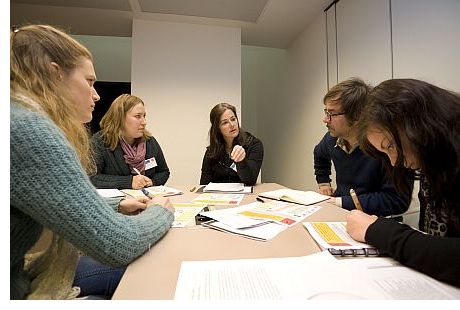News
SPIRAL "UK National Ecosystem Assessment" paper publshed
A new paper has been published based on work carried for SPIRAL, authored by Kerry Waylen and Juliette Young. This paper focuses on the first phase of the UK National Ecosystem Assessment.
Upcoming Event
No upcoming events.
WP 3 - Positive Mechanisms
 In WP 3 we will consider the different ways in which the science-policy interface influences human behaviour with an impact on biodiversity and ecosystems.
In WP 3 we will consider the different ways in which the science-policy interface influences human behaviour with an impact on biodiversity and ecosystems.
We will examine the ways in which different arguments and instruments (including biodiversity targets and indicators, scenarios, ecosystem service concepts, incentive measures, policy appraisal and risk assessment methods) can be used to influence behaviour.
We will conduct a literature review capitalising on existing knowledge on the use of various instruments for encouraging social behaviour to reduce negative human impact on biodiversity. It will examine how the instruments can improve the ways in which scientific, economic, ethical, moral and stewardship principles are integrated into policy making. It will also assess the ways in which research addresses its own role in supporting different instruments in affecting social behaviour.
Particular attention will be paid to ways in which the potential for affecting social behaviour to reduce negative human impact on biodiversity is considered in the science-policy dialogue. Analysis will assess the ways in which scientific, economic, ethical, moral and stewardship principles are integrated in policy making.
Next we will extend the results of the above analyses, and draw on stakeholder expertise via interviews and two focused workshops. We will develop two matrix reporting frameworks, for instruments and for interfaces, and produce a fact sheet for each instrument and each interface. The fact sheets will include recording evaluations for each criterion in each context, highlighting synergies/conflicts, and a brief summary of actual experience. A final workshop will refine and validate the fact sheets, allowing for the reporting of convergent or divergent stakeholder opinions under each category.




